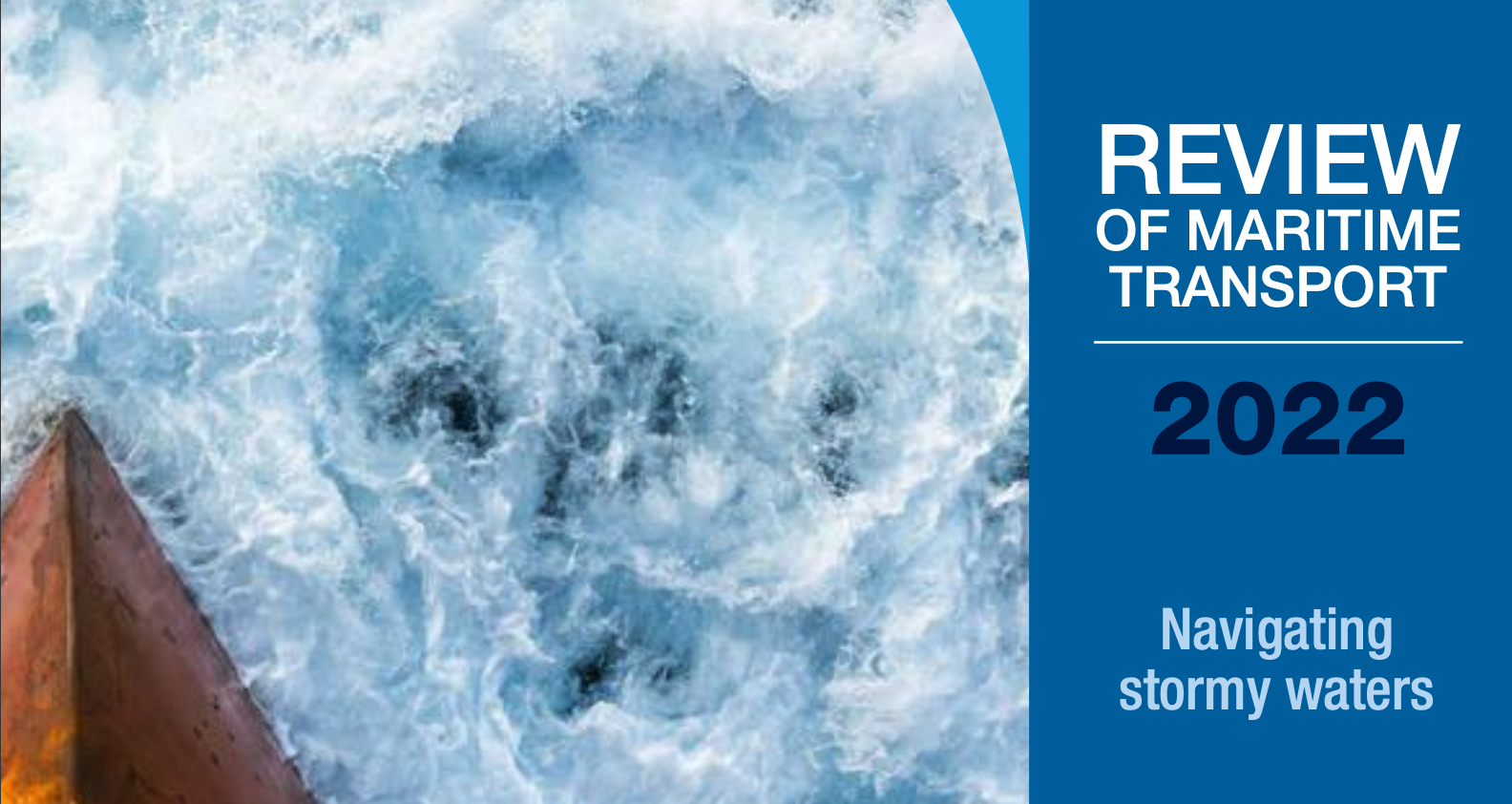Global marine traffic has increased with container ships spending 13.7% longer in port.
Source: Review of Maritime Transport 2022 by the United Nations Conference on Trade and Development. Full report here
In early 2022, the total fleet of seagoing merchant vessels amounted to 102,899 ships of 100 gross tons and above, equivalent to 2,199,107 thousand dwt of capacity. In the 12 months to January 2022, in dwt terms the global commercial fleet grew by 2.95 per cent (table 2.1), an historically moderate growth rate and the second lowest since 2005 (figure 2.1). Over the same period, supported by robust global gas demand, the fleet of liquified-gas carriers continued to grow strongly, by 8.15 per cent.1
Rarely has the importance of maritime logistics for trade and development been more evident than during the last year. Historically high and volatile freight rates, congestion, closed
ports and new demands for shipping following COVID-19 and the war in Ukraine have all had measurable impacts on people’s lives. With ships carrying over 80% of volume of global trade, higher shipping costs and lower maritime connectivity lead to higher inflation, shortages of food, and interruptions of supply chains – all of which are among the features of the current global crisis.
Concretely, the Review estimates that higher grain prices and dry bulk freight rates in early 2022 contribute to a 1.2 per cent increase in consumer food prices. Container ships spent 13.7 per cent longer in port in 2021 compared to 2020, exacerbating delays and shortages. And during the last year, total green- house-gas emissions from the world fleet increased by 4.7 per cent.
UNCTAD’s Review of Maritime Transport has assessed and accompanied developments in shipping and seaports since 1968. The experience and extensive data sets generated during the last decades help UNCTAD provide a comprehensive and thorough assessment of the causes and impacts of the trends covered in the Review. And the message emanating from our analysis is clear: The world again needs the shipping industry to navigate through the rough seas of crises.
The war in Ukraine has disrupted major shipping routes and supply chains. It has also triggered record prices that could push tens of millions more people across the world into hunger and poverty this year, as has been stated by the UN Global Crisis Response Group. Maritime transport has a key role to play in cushioning the blow. Prices need to come down to affordable levels, especially for developing countries, and for the world to have enough fertilizers to feed itself.
Under the leadership of UN Secretary General Antonio Guterres, the United Nations has sought to address these two pressing concerns through the parallel implementation of two initiatives: the Black Sea Grain Initiative, through which over ten million metric tons of grain have been shipped from Ukrainian ports, and the Memorandum of Understanding on Promoting the unimpeded exports of Russian Food and Fertilizers to the World Markets. Alongside Türkiye, a key player in this effort, we signed the two agreements in Istanbul on July the 22nd. UNCTAD, and in particular our teams working on maritime logistics, provided essential support to these initiatives, which highlight the real development impact of UNCTAD’s policy research in this field.
As the ongoing supply chain crisis is easing, with decreasing freight rates and improving port performance, we must not lose sight of the actions needed to prepare for the long-term development of the sector. We need a transparent multilateral framework for the decarbonization of maritime transport, to reduce uncertainty for policy makers and industry alike. Confronted with uncertainty, ship owners have delayed some new building orders, and the average age of the world container ship fleet has increased from 10.3 to 13.7 years.
We also need to ensure that the concerns of the developing countries, notably the most vulnerable economies including Least Developed Countries and Small Island States, are addressed. We must avoid that the same countries that are most negatively affected by climate change – and who have contributed the least to its causes – would also be those who would be most negatively affected by climate change mitigation.
Thus, looking beyond the horizon, the Review points to major challenges, but also opportunities for developing countries. Extensive data sets and analysis show how decarbonization, digitalization, and market consolidation require novel and collaborative policy responses. The Review of Maritime Transport 2022 provides the necessary assessment, and it is my hope that it will help to identify the solutions for a future world that counts on sustainable and resilient maritime supply chains.
